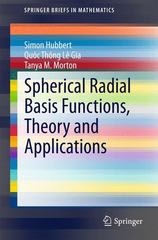Question
A Pew Research study conducted in 2017 found that approximately 75% of Americans believe that robots and computers might one day do many of the
A Pew Research study conducted in 2017 found that approximately 75% of Americans believe that robots and computers might one day do many of the jobs currently done by people (Pew Research website, http://www.pewinternet.org/2017/10/04/americans-attitudes-toward-a-future-in-which-robots-and-computers-can-do-many-human-jobs/). Suppose we have the following data collected from nurses, tax auditors, and fast-food workers in which a higher score means the person feels his or her job is more likely to be automated.
| Tax | Fast-Food | |
| Nurse | Auditor | Worker |
| 3 | 5 | 4 |
| 4 | 6 | 6 |
| 4 | 5 | 5 |
| 5 | 4 | 5 |
| 3 | 7 | 7 |
| 4 | 5 | 5 |
| 5 | 6 | 6 |
| 4 | 5 | 7 |
a. Use a = 0.05 to test for differences in the belief that a person's job is likely to be automated for the three professions.
F = ________ (to 2 decimals)
The p-value is (- Select your answer -)
less than 0.01
between 0.01 and 0.025
between 0.025 and 0.05
between 0.05 and 0.10
greater than 0.10
What is your conclusion?
We (- Select your answer -)
reject
cannot reject....the null hypothesis that the mean scores are the same for the three professions.
b. Use Fisher's LSD procedure to compare the belief that a person's job will be automated for nurses and tax auditors.
LSD = (to 2 decimals)
What is your conclusion?
We (- Select your answer -)
reject
cannot reject....the null hypothesis that the two population means are equal.
Step by Step Solution
There are 3 Steps involved in it
Step: 1

Get Instant Access to Expert-Tailored Solutions
See step-by-step solutions with expert insights and AI powered tools for academic success
Step: 2

Step: 3

Ace Your Homework with AI
Get the answers you need in no time with our AI-driven, step-by-step assistance
Get Started


